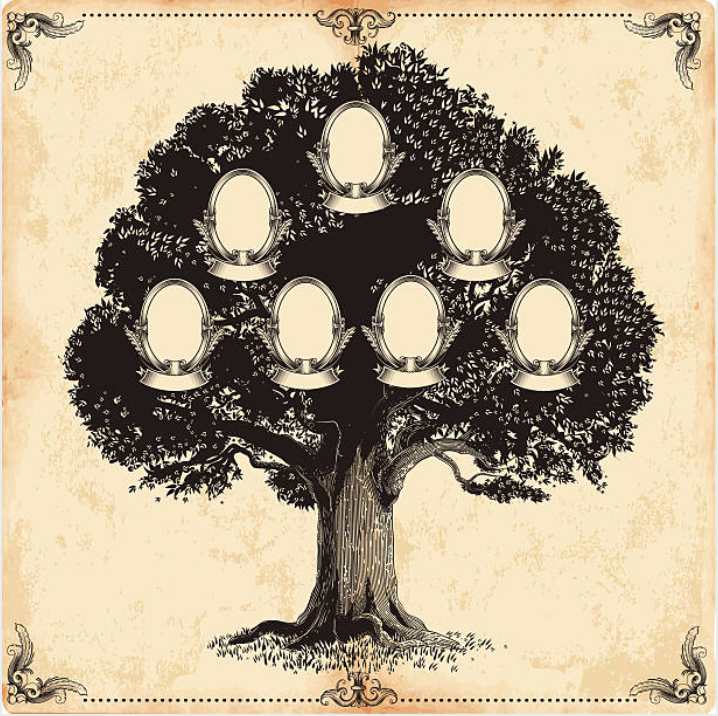
Genealogy has seen a resurgence in recent years with companies like Ancestry creating a renewed interest in genealogy amongst even main stream non-historians. As a result of this, there are many people who are interested in the concept of tracing their family tree, but simply do not know where to begin.
So you want to get started with genealogy? But what if you don't know how to begin? This blog post will walk you through some of the first steps that you can take to tracing your own family tree.
The first thing that you should do after you collect a notepaper and pen, is to record as many generations as you personally know. You should be making a notation of which generations you have personally met at some point in your life, and which ones you are simply recording from stories that you have been told. Next, you should try to figure out everyone from those prior generations who is still alive (the further back the better), because they will be your next step in building your family tree.
Once you have identified which of your oldest relatives are still alive, you should work on reaching out to them and finding out what they remember about their own lives and any deceased family members. For Example: If your Great-Aunt is still alive, here are some questions that you might ask her:
- If you have any old photographs or letters, ask her to identify the people in the photos/the people involved in the letter
- Ask her who the last person was who she can remember having your "Family Bible". You can then use this information to try to track down their descendants and see if the Bible is still in your extended family.
- Ask her if any portraits ever existed of older generations. In my own family, I know that nobody who I knew, remembered what our immigrant ancestors looked like. However, it turned out that my great-grandfather's (he lived to 100, so I knew him) cousin had had portraits of them hanging in his home. While nobody ever thought to ask my great-grandfather, we thankfully connected with the descendants later and now have photographs of the paintings. We could have avoided the extreme reliance on luck if someone had just thought to ask that specific question, since we knew that he spent holidays at that cousin's home for decades, so he definitely would have known about the portraits.
- If your family has any immigration history, ask her for any details that she might know. Everyone knows about the passenger lists, and many people can determine which ports their ancestors came through, but there is much more to most immigration stories than that. I would not have thought about this until about a decade ago when one of my relatives died and they were a bit of a pack rat. This was amazing from a genealogical perspective because of the treasure trove of documents. Within that trove there were the original passports and tickets to the United States from the 1850s. Due to the fact that all of the branches of that family are Swiss, it was obvious that some journey had occurred to get them to Le Havre in France where they boarded the ship, but I had never really thought much about it. Well, within those documents was 1 complete set of papers which included all of the paperwork that they had required, so we now know exactly how they traveled from Switzerland to Le Havre: Ferry route, how much each leg of the journey cost, who the captains were, etc. While it is unlikely that your relative will know those specifics if immigration was too long ago, she might know some loose details that can add to your overall picture.
- Ask her about the details that weren't always recorded: What name did people go by? What were people's full names? What engagement stories does she know? Does she know how various couples met?
- Ask her about anyone who you have "lost" in your own research? Did they move away? Did they die?
- Ask her about all of the family church names that she can remember.
- Ask her if there was anyone in prior generations who worked on the family's genealogy. You might not be the first person to look into it, even if it was never passed down to you, it might have been passed down to a distant cousin who you can reach out to. This can prove to be invaluable if that person had any transcriptions or summaries of documents that no longer exist.
The key here is that you are attempting to get as much 1st hand information from older generations while they are still around. A little work now can spare you hours or more of pain later when you are struggling to determine which John Smith was your ancestor and you could solve it all if you knew what your great-great-grandfather's occupation had been.
This is just a first posting, I hope that it will get some attention and interaction. I will be including any questions that I get in the comments as a portion of my next posting. The next thing that I will discuss is where to begin your search through public records. Obviously this will be different depending on the country, but I will be walking through a few of the major databases.
Thank you and happy hunting,
A History of Us
Congratulations @ahistoryofus! You received a personal award!
You can view your badges on your Steem Board and compare to others on the Steem Ranking
Do not miss the last post from @steemitboard:
Vote for @Steemitboard as a witness to get one more award and increased upvotes!